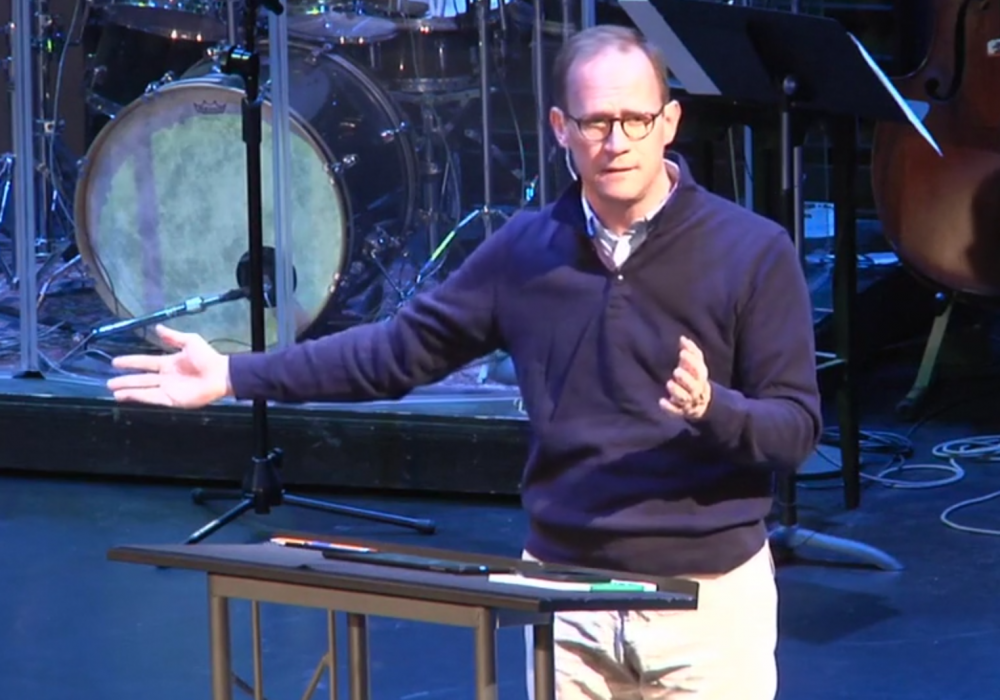Do not fear, only believe (Mark 5:36). As you read this, you may at this moment be filled with hope and expectation … or you may be filled with dread and anxiety about the future. Either way, Jesus’ simple words to a suffering man speak volumes. Jesus invites us to rest in him, now and always. But why should we trust Jesus? How can we be certain that he has our best in mind, or that he is working for our good?
Faith
What Does Real Faith Look Like?
Now I would remind you, brothers, of the gospel I preached to you, which you received, in which you stand, and by which you are being saved, if you hold fast to the word I preached to you—unless you believed in vain (1 Corinthians 15:1-2). Paul’s expression of the Christian gospel in 1 Corinthians 15 is well known as one of the chief apologetic passages in the New Testament.
When I Am Weak, Then I Am Strong
But he said to me, “My grace is sufficient for you, for my power is made perfect in weakness.” Therefore I will boast all the more gladly of my weaknesses, so that the power of Christ may rest upon me. For the sake of Christ, then, I am content with weaknesses, insults, hardships, persecutions, and calamities. For when I am weak, then I am strong (2 Corinthians 12:9-10). After Paul fervently prayed for God to remove a particular trial from his life, he received an answer.
Psalm 25 and the New Year
The old British divine Matthew Henry refers to the practice of praying God’s Word back to God as “wrestling with God in his own strength.” For this reason, I love to peruse the Bible for prayers to make my own. And one of my favorite passages to pray is Psalm 25. As we look forward to a new year, I don’t know what changes, purposes, or opportunities await each of us, but I am confident that “good and upright is the LORD” and that, “therefore he instructs sinners in the way. He leads the humble in what is right, and
Every Believer Is a Saint
To the church of God that is in Corinth, to those sanctified in Christ Jesus, called to be saints together with all those who in every place call upon the name of our Lord Jesus Christ, both their Lord and ours (1 Corinthians 1:2). Paul’s first letter to the Corinthians is an epistle written to straighten out a church with a host of serious problems. Yet as such it is helpful and enlightening and inspiring to see how Paul the theologian addresses his deep, rich theology to specific, messy, practical issues as Paul the pastor.
Trusting in the Lord During Seasons of Waiting
My God will hear me (Micah 7:7). Five small words — but they teach several crucial lessons. As Micah determines to look to the one true God as his only hope and sufficiency, waiting on his perfect timing and perfect answers, he confidently asserts: “my God will hear me.”
Your Job In Trials: Trust God
When Abram was ninety-nine years old the Lord appeared to Abram and said to him, “I am God Almighty; walk before me, and be blameless” (Genesis 17:1) Genesis 16:16 concluded by specifically stating that Abram was 86 years old when Hagar bore Abram’s child Ishmael. Now the very next verse, in Genesis 17:1, frankly dates the next narrative as being when Abram was 99 years old — a period of 13 years! Did Abram go 13 years without even hearing from God? It certainly seems possible. Abram had to live by faith during a painful time of waiting and probably
How God Calls Abraham, and Every Believer
Now the Lord said to Abraham, “Go from your country and your kindred and your father’s house to the land that I will show you.” (Genesis 12:1) How does Abraham go from idolatry to being a believer in the one true God? God speaks to him! This in a nutshell differentiates Abraham’s story from that of his father Tera who was a Babylonian idolater (Joshua 24:2). God is the one who initiates salvation, God is the one who calls Abraham out of pagan darkness into the light of His truth. God’s redemptive work, like the Creation itself, begins with God
I Will, If the Lord Permits
…I hope to spend some time with you, if the Lord permits (1 Corinthians 16:7). Even the best of desires may not be brought to fruition here on earth. Even our best kingdom visions may never be fulfilled. And even our best plans may never come to pass. Here even the apostle Paul himself admits that his plans are fallible and must therefore be flexible. “I have made my very best plans,” Paul says, “and am operating according to them to the best of my ability—but all the while in the recognition that my plans may not be God’s plans.”
Dining With Jesus Every Day
Behold, I stand at the door and knock. If anyone hears my voice and opens the door, I will come in to him and eat with him, and he with me. (Revelation 3:20) When we open the door of communication with Jesus, Jesus himself describes this event as being like dinner with a dear friend. Do you come to your dinner table with a to-do list of things to cover in conversation? Are you nervous or hurried when you sit down to have dinner in your home with a dear friend?
The Spirit of Adoption, Not of Fear
You did not receive the spirit of slavery to fall back into fear, but you have received the Spirit of adoption as sons, by whom we cry, “Abba! Father!” (Romans 8:15). Paul is intent on telling Christians something the Spirit of God does do, and something the Spirit emphatically does not do. Paul insists the Spirit of God does not bring a slavish fear but rather an affectionate crying out to God as our Father.
Is Your Life the Same As the Unsaved?
In several places in Scripture Paul gives us a list of the kinds of sins that characterize the unsaved, along with the admonition not to tolerate these sins in our own lives as professing believers (1 Corinthians 10:7-12; Ephesians 5:3-7; Colossians 3:5-9). It should be incredibly sobering to us if we are regularly participating in the exact same sins that have brought others under the wrath and judgment of God!
Why Do Bad Things Happen to Christians?
This series of brief videos offers bite-sized, meaningful answers to commonly asked questions. We hope they will be a help to you! Please also share them freely. If you would like to submit a question of your own, please note the contact info at the conclusion of the video. We look forward to hearing from you!
FAQ: Is It Ok to Have Doubts About God?
This series of brief videos offers bite-sized, meaningful answers to commonly asked questions. We hope they will be a help to you! Please also share them freely. If you would like to submit a question of your own, please note the contact info at the conclusion of the video. We look forward to hearing from you!













